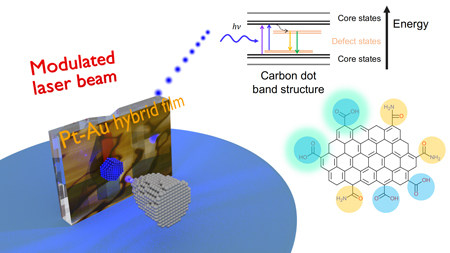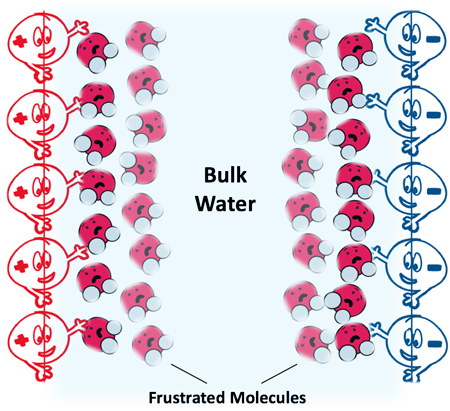“The Relationship Between Nutrient Patterns, Brain Health, and Cognition in Older Adults”
Mickeal N. Key, neuroscience, Beckman Institute Graduate Fellow
Nutrition has increasingly been recognized for its ability to help prevent and protect against disease, inspiring new programs of research that translate findings from nutritional science into innovative assessment tools, technologies, and therapies to advance the practice of modern medicine. A central aim in this effort is to discover specific dietary patterns that promote healthy brain aging and moderate the engagement of neural systems known to facilitate cognitive performance in later life. This presentation will highlight these efforts by describing a study that investigates estimates of nutrient intake derived from food frequency questionnaires, structural measures of brain volume via high-resolution magnetic resonance imaging, and standardized neuropsychological measures of memory performance in nondemented elders (n=111) using a moderation analysis. The findings demonstrate that a nutrient pattern including macro- and micronutrients moderate the effect of brain structure on cognitive function in old age and support the efficacy of interdisciplinary methods in nutritional cognitive neuroscience for the study of healthy brain aging.
Speaker biography
Mickeal N. Key is a doctoral student in neuroscience and is a Beckman Institute Graduate Fellow, working in the laboratory of Aron Barbey, a professor of psychology. Her general research interests are in how genetic, metabolic, and lifestyle factors influence the human brain across the life span. She wants to understand genetic risk factors related to cognitive aging and what predictive information diet, body composition, metabolic status, and inflammation status can provide to support healthy brain aging outcomes. She also is interested in understanding health disparities in cognitive aging and how we can improve minority cognitive health outcomes. She earned an M.A. in experimental psychology at Indiana State University and a B.S. in psychology and in biological science from Louisiana State University.
“Understanding the Fluorescence Mechanism of Carbon Dots Through Single-molecule Excited-state imaging”
Huy Nguyen, chemistry

Scanning tunneling microscopy (STM) and single molecule absorption STM (SMA-STM) were used to study the fluorescence mechanism in carbon dots. The red- and blue-fluorescing Cdot samples were previously purified and characterized in bulk with standard spectroscopic techniques. Carbon dots were deposited on a thin hybrid PtAu film over a sapphire substrate via solvent-based aerosol deposition. Current imaging tunneling spectroscopy was performed initially to resolve the spatial electronic structure of the adsorbed Cdots, estimating the quantity of defects, whether they were active or inactive as optical absorbers, and measuring energy levels of dopants. Then SMA-STM was applied to spatially resolve electronically excited defects, and used scanning tunneling spectroscopy (STS) in situ to look at the density of states at these locations during laser excitation and otherwise. Significant spatial variations in the band structure were observed and increased defect quantity as fluorescence red-shifts was detected. The energy levels involved in fluorescence were identified and ultimately the most plausible fluorescence mechanism was discussed, which does not depend on the size of the Cdot.
Speaker biography
Huy Nguyen is a doctoral student in chemistry and works with the research groups of Professors Martin Gruebele, chemistry, and Joseph Lyding, electrical and computer engineering. Nguyen is interested in integrating spectroscopy and single-molecule microscopy together to characterize semiconducting nanomaterials, especially quantum dots, carbon dots, and carbon nanotubes. His Ph.D. revolves around developing the scanning tunneling microscope to probe optical absorption of single molecules at the sub-nanometer resolution and femtosecond time resolution. Nguyen earned a B.S. in chemistry at the University of California at Berkeley.
“Anomalously Low Dielectric Constant of Fluids in Nano Confined Graphene Slit Channel”
Mohammad Hossein Motevaselian, mechanical science and engineering

Fluids confined in nanospaces behave very different than in bulk. Confinement induces significant changes in fluid properties such as viscosity, structure, diffusion, etc. Most of these effects are observable locally within few nanometers away from the interface, however, only recently, experiments have shown that confinement alters the out-of-plane dielectric response (the ability to screen charges) of water on the scales beyond than nanometers. In this work, we study the out-of-plane dielectric response of both protic (capable of forming hydrogen bonds) and aprotic fluids confined inside slit pore graphene channels. It was found that the reduction in perpendicular permittivity is universal and is related to the very existence of an interface which suppress the orientational freedom of molecules normal to the interface. In addition, an anomalously low dielectric response is observed under extreme confinement (~ below 1 nm). Finally, the findings reveal that the length scale that the bulk behavior is recovered varies with the polarity, temperature and density of each fluid and ranges from hundreds of nanometer to micrometer. The group believes its findings will provide significant impact on designing energy storage devices such as supercapacitors, understanding long-ranged electrostatic interactions in biological systems and solvation chemistry in polar fluids.
Speaker biography
Mohammad Hossein Motevaselian is a doctoral student in mechanical engineering working at the Beckman Institute with Narayana Aluru, a professor of mechanical science and engineering. His research is focused on studying the effect of interface on the fluid properties at nanoscale and to understand their underlying fundamental physics in order to develop coarse-graining models for multiscale simulations with the same accuracy as molecular dynamics simulations but orders of magnitude faster in simulating systems involving multiple length and time scales ranging from the quantum to atomic to continuum scales. Such models can be very useful in many health- and energy-related applications. He earned a B.S. in mechanical engineering at the University of Tehran, Iran, and an M.S. degree in mechanical engineering at the University of Illinois at Urbana-Champaign.